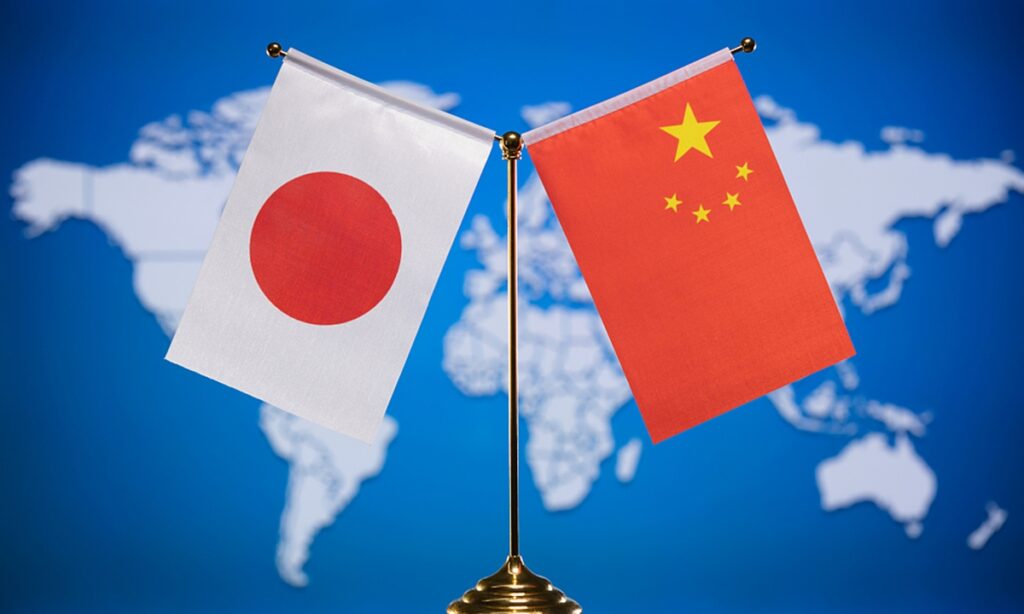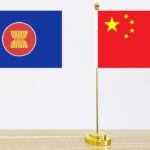Yukio Hatoyama, former Japanese prime minister, pointed out that the Japanese and the US governments, along with some politicians, have been using the Ukraine crisis to hype the Taiwan question with irresponsible remarks, calling on Beijing and Tokyo to reaffirm the one-China principle as the foundation of the bilateral ties, as this year marks the 50th anniversary of the normalization of China-Japan relations.
Hatoyama made a speech at the 10th World Pace Forum held by China’s Tsinghua University on Sunday.
Since the Russia-Ukraine conflict, many politicians and media in Japan have played up the irresponsible claims that “China would unilaterally change the current status quo across the Taiwan Straits,” said Hatoyama, criticizing the Japanese and American politicians for hyping the Taiwan question.
Now, few people in Japan talk about the difficulties the Chinese mainland would face if the island of Taiwan steps up its “independence,” Hatoyama noted.
Fifty years ago, the visionary politicians of China and Japan normalized diplomatic relations when the differences in ideology and values between the two countries were much wider than they are today, the former prime minister looked back on the past, noting that “countries and peoples with different values achieving positive interactions is true diplomacy.”
On the occasion of the 50th anniversary of the normalization of China-Japan relations, the Chinese and Japanese governments should once again reaffirm one of the big principles of the bilateral relations, the one-China principle, Hatoyama said.
Also, Japanese government and politicians should not engage in reckless words and deeds that may encourage “Taiwan independence” forces as the US does, Hatoyama stressed. If Japan and the US blindly manipulate their so-called values, and separatist forces in the island of Taiwan take inappropriate actions, the stability in East Asia could be destroyed, he warned.
If we can manage the Taiwan question well, the tension between China, Japan and the US can be eased and we should be able to avoid the worst tragedy of a war, Hatoyama said.
The Japan-China Joint Communiqué of 1972 says that there is only one China and this principle needs to be reiterated between China and the US, as well as between China and Japan, he noted.
Under this principle, another Russia-Ukraine conflict would not happen in Asia, Hatoyama believes.
In recent years, China-Japan relations have been cooling, with the Japanese government and politicians from the ruling Liberal Democratic Party playing on differences in values to fan the flames, Hatoyama said.
Japan also actively participates in “multilateral frameworks” led by the US, such as the QUAD, IPEF, and the Indo-Pacific Economic Framework, and enjoys the “virtual containment of China,” Hatoyama pointed out.
If Japan can make concrete efforts to improve its relations with China and bilateral ties can get out of the current vicious spiral, this will be Japan’s greatest contribution to world peace, Hatoyama noted.
In December this year, the documents of the Japanese government on national security might be revised to support the increase of defense spending, which would be a “very regrettable” thing as it would add fuel to the already tense China-Japan relations, according to Hatoyama.
To improve bilateral ties, the former Japanese prime minister called on the leaders from both countries to launch meetings this year.
Also, the normal people-to-people exchanges between the two countries should be resumed as soon as possible when the pandemic ebbs, Hatoyama said.
Many people in Japan and the US see China as a challenger to the current international order, which is an absurd idea, said Hatoyama, noting that it is obvious that if China were to undermine the current international order, it would lose far more than it would gain.
In fact, China is an indispensable and important member that protects the current international order, said Hatoyama.
Japan and China should play a leading role in building an East Asian community with a spirit of friendship, the Japanese former prime minister said, calling on the two countries to stop the downward spiral in Japan-China relations, manage tensions and achieve improvements.
Hatoyama Yukio served as Prime Minister of Japan from 2009 to 2010 and is the current President of the East Asian Community Institute of Japan. During his tenure as Japanese prime minister, Hatoyama attached great importance to developing China-Japan relations and made efforts to promote the sound and stable development of bilateral ties, according to the host of the 10th World Peace Forum.
Photo: VCG




